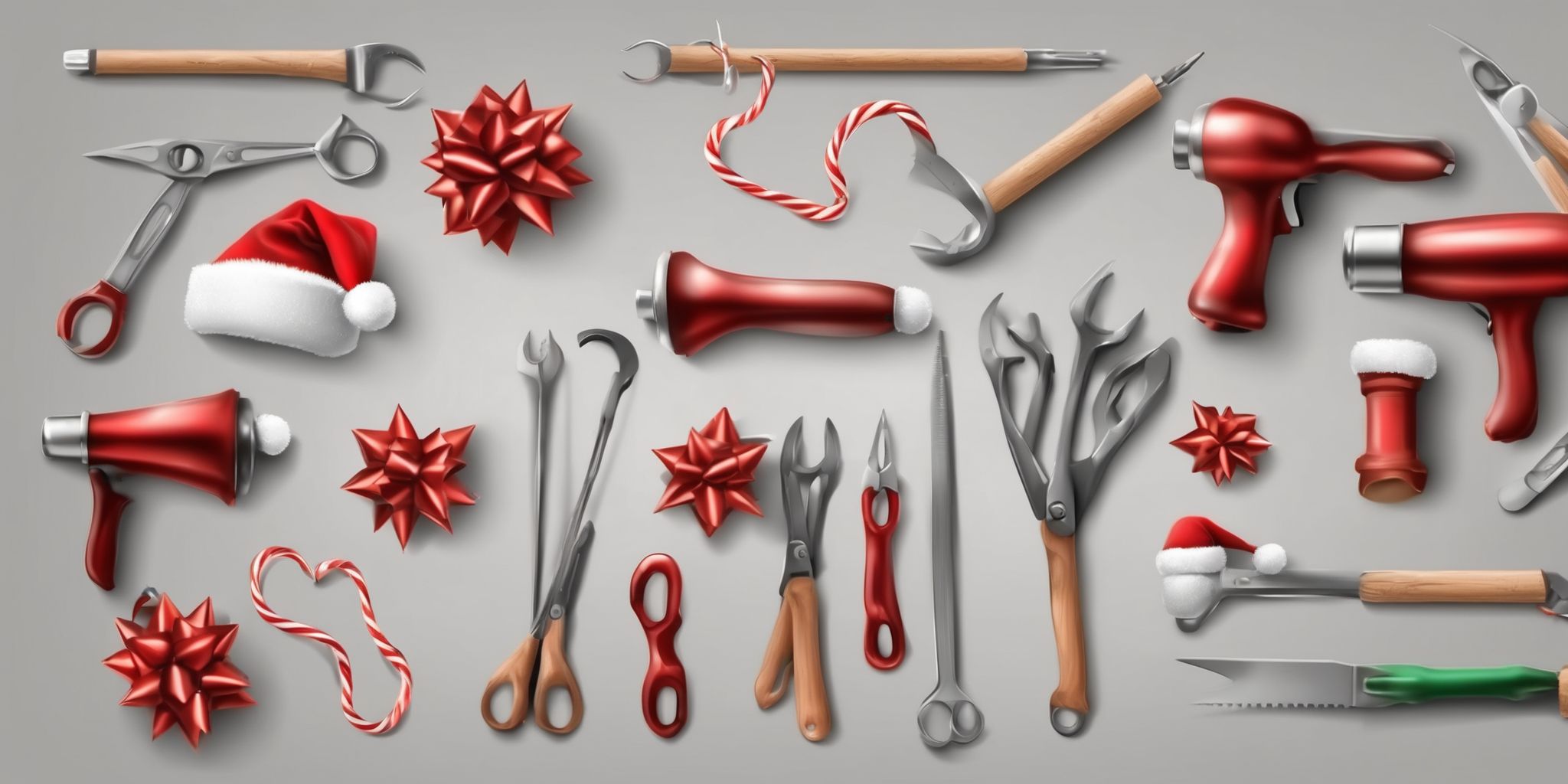- Blog
- Christmas 2023
- Crafting Workshops: Unlocking Your Creative Potential this Winter

Winter is here, casting a magical spell that urges us to slow down, sip warm beverages, and nestle in the comfort of our cozy abodes. As the world outside turns frosty, our imagination seeks to break free from its cocoon and embark on a creative journey.
What better way to awaken the dormant artist within than by immersing yourself in the enchanting realm of crafting workshops? These delightful rendezvous offer more than just a welcome distraction from the chilly weather; they hold the key to unlocking your untapped creative potential. So, get ready to ignite your passions, unleash your inner artist, and join us as we uncover the wonders that crafting workshops have in store for you this winter.
Crafting Workshops: Unlocking Your Creative Potential this Winter
Crafting workshops offer a valuable opportunity to explore your creative potential this winter. These hands-on sessions provide a practical platform for enhancing your skills and learning new techniques. Whether you choose a pottery workshop to create unique ceramic pieces or a jewelry making workshop to design your own accessories, the possibilities are endless. Painting workshops can help you experiment with different styles and improve your color mixing skills.
Attending these workshops not only allows you to escape the winter blues but also provides a chance to meet like-minded individuals who share your passion for crafting. Don't forget to come prepared with ideas, ask questions, and practice what you learn to get the most out of these enriching experiences.
Why Attend a Crafting Workshop?
Enhance Your Skillset
Enhancing your skillset through a workshop can have a significant impact on your creative abilities. By participating in hands-on activities and learning from experienced instructors, you can acquire new techniques and refine existing ones.
For example, in a painting workshop, you may discover innovative ways to blend colors or create texture, allowing you to elevate your artwork to new levels.
Additionally, a jewelry-making workshop might teach you wire wrapping techniques that enhance your ability to create intricate designs. These practical insights can be immediately applied to your craft, helping you develop a diverse range of skills that contribute to your overall creative growth.
Discover New Techniques
In a workshop, you have the opportunity to discover new techniques that can expand your creative repertoire. Learning these fresh approaches can open up endless possibilities for your craft. Whether it's a pottery workshop where you experiment with different glazing techniques or a painting workshop where you develop your color mixing skills, exploring new techniques allows you to push the boundaries of your creativity.
By gaining exposure to various methods, you can incorporate them into your own unique style. These new techniques not only enhance your skillset but also inspire you to think outside the box and produce innovative and original work.
Nurture Your Creativity
- Workshop environments provide an ideal space for nurturing and expanding your creative abilities.
- Engaging in hands-on activities can stimulate your imagination and inspire new ideas.
- Experimenting with different materials, techniques, and perspectives can help unlock your creativity.
- Collaborating with others in the workshop setting can offer fresh insights and encourage innovative thinking.
- Stepping outside your comfort zone and trying new things can spark creativity and lead to unexpected discoveries.
- Embrace the opportunity to explore your artistic potential and embrace a growth mindset towards your creative endeavors.
Types of Crafting Workshops Available
Pottery Workshop
A pottery workshop offers a hands-on experience in creating unique ceramic pieces. You can learn various techniques like wheel throwing, hand-building, and glazing. By attending this workshop, you can develop your artistic skills and unleash your creativity through clay manipulation. Experimenting with different glazing techniques allows you to enhance the aesthetic appeal of your pottery.
Whether you want to make functional pieces or decorative art, a pottery workshop provides the opportunity to express yourself and gain a deeper understanding of this ancient art form. Joining a pottery workshop can be a rewarding and fulfilling experience to explore your artistic potential.
Create Unique Ceramic Pieces
In a ceramic workshop, participants have the opportunity to unleash their creativity and create unique ceramic pieces. Here's how:
- Hand Building Techniques: Learn the fundamentals of shaping clay by hand, using techniques like pinch, coil, and slab construction. This allows you to create one-of-a-kind ceramic forms with your own personal touch.
- Surface Decoration: Explore various surface decoration techniques such as carving, sgraffito, and slip trailing. These techniques add texture and visual interest to your ceramic pieces, making them truly unique.
- Glazing: Experiment with different glazes and their application methods to achieve stunning effects. From glossy to matte finishes, the possibilities are endless when it comes to adding color and depth to your creations.
- Firing Process: Gain insights into the firing process and its impact on the final outcome of your ceramic pieces.
Understanding the different temperatures and atmospheres in kilns helps you control the appearance and durability of your work.
Remember, the joy of creating unique ceramic pieces lies in the exploration of techniques, experimenting with different ideas, and embracing the imperfections that make each piece truly one-of-a-kind.
Explore Different Glazing Techniques
In a pottery workshop, exploring different glazing techniques is a valuable skill to acquire. Glazing adds depth, color, and texture to your ceramic pieces. Through experimentation, you can create unique finishes and effects. Try using techniques like brushing, spraying, or dipping to apply glazes onto your pottery.
For example, layering multiple glazes can create interesting patterns and variations.
Additionally, you can experiment with different types of glazes, such as matte, glossy, or crystalline, to achieve the desired visual effects. By exploring various glazing techniques, you can enhance the overall aesthetic appeal of your ceramic creations.
Jewelry Making Workshop
In a Jewelry Making Workshop, participants have the opportunity to design and craft their own unique accessories. They can learn various wire wrapping and beading techniques to create stunning pieces that reflect their personal style. From bracelets and necklaces to earrings and pendants, the workshop provides hands-on experience in jewelry creation. Participants can explore different materials and learn how to combine them effectively to achieve desired results.
Whether it's using gemstones, glass beads, or metal components, the workshop offers practical insights to help individuals create beautiful jewelry that they can wear or gift to others.
Design and Craft Your Own Accessories
In a jewelry making workshop, you have the opportunity to design and craft your own accessories. Let your creativity flow as you choose materials, colors, and styles that reflect your personal taste. Whether it's a necklace, bracelet, or pair of earrings, you can create unique pieces that perfectly complement your outfits or make thoughtful gifts for loved ones. Learn various techniques such as wire wrapping and beading, and explore different combinations to achieve different looks.
With guidance from experienced instructors, you'll gain the skills needed to turn your accessory ideas into beautiful reality.
Learn Wire Wrapping and Beading Techniques
In the Wire Wrapping and Beading Techniques workshop, you'll learn valuable skills to create your own unique jewelry pieces. Wire wrapping involves using various wires to secure beads and gemstones in beautiful designs, while beading techniques teach you how to string beads together effectively. By mastering these techniques, you can craft stunning earrings, necklaces, and bracelets with ease.
Discover different methods to create intricate wire shapes, loops, and wraps, adding a personalized touch to your jewelry. During the workshop, you'll have the opportunity to practice wire wrapping and beading, enhancing your craftsmanship and unleashing your creativity.
Painting Workshop
A Painting Workshop is a perfect opportunity to explore different painting styles and improve your color mixing skills. In this workshop, you can experiment with various techniques such as acrylic pouring, watercolor washes, or palette knife painting. Learn how to create texture, blend colors, and add depth to your artwork. The instructor will guide you through the process, providing tips and tricks along the way.
Whether you are a beginner or have some experience in painting, attending a workshop can help broaden your artistic horizons and inspire new ideas for your future pieces. Embrace the freedom of expression and let your creativity flow on the canvas.
Experiment with Different Painting Styles
In a painting workshop, you have the opportunity to experiment with different painting styles. This allows you to expand your artistic range and discover new techniques. Trying out various styles can help you find what resonates with you personally and enhances your artistic expression.
For example, you can explore impressionism, abstract, or realism, each offering its own unique approach to painting. By experimenting with different styles, you can gain a deeper understanding of the various ways to use color, texture, and brushwork to convey emotions or messages in your artwork. This hands-on exploration can fuel your creativity and inspire you to develop your own signature style.
Develop Your Color Mixing Skills
Developing your color mixing skills is a valuable aspect of any painting workshop. Understanding how colors interact and blend can greatly enhance your ability to create vibrant and harmonious artwork. By experimenting with different combinations of primary colors, you can learn to create an endless array of secondary and tertiary colors.
For example, mixing blue and yellow can result in various shades of green. Practicing color mixing techniques, such as creating gradients and achieving color balance, will enable you to bring depth and dimension to your paintings. With time and practice, you'll develop an intuitive sense of color that will greatly elevate your artistic creations.
Choosing the Right Workshop for You
Consider Your Interests and Goals
Before choosing a workshop, it's important to consider your interests and goals. Think about the specific skills or techniques you want to learn and the type of crafting that excites you the most. For example, if you're a fan of accessories, a jewelry making workshop might be a perfect fit. On the other hand, if you enjoy working with your hands, a pottery workshop could be the ideal choice. By aligning your interests and goals with the workshop content, you'll ensure a more fulfilling and enjoyable experience. Take the time to explore different workshop options and find the one that resonates with your passions.
Research the Workshop Instructors
Researching the workshop instructors is an important step when choosing a workshop. By learning more about the instructors' backgrounds and expertise, you can ensure that their teaching style and knowledge align with your goals. Look for instructors who have experience in the specific crafting technique or medium you are interested in. Check their credentials, such as their education or any awards they have received.
Additionally, read reviews or testimonials from previous workshop attendees to get a better understanding of their teaching approach and effectiveness. A well-informed choice of workshop instructor can greatly enhance your learning experience and maximize your creative potential.
Check the Workshop Schedule and Location
Before committing to a workshop, it's important to check the schedule and location. Look for a workshop that fits your availability and is conveniently located. Consider factors like the duration of the workshop and whether it aligns with your schedule. Additionally, think about the location in terms of accessibility and convenience. A workshop closer to your home or workplace can save you time and make attending easier. You don't want to miss out on valuable learning opportunities due to scheduling conflicts or travel difficulties. Make sure to review the workshop details and map out the logistics beforehand.
Benefits of Attending a Winter Workshop
Escape the Winter Blues
Winter can be a challenging time, but attending a workshop can help you escape the winter blues. Engaging in a creative activity can uplift your mood and provide a welcome distraction from the cold weather. During a workshop, you can immerse yourself in the creative process, focusing on the task at hand and finding joy in the act of creating something with your own hands.
Whether it's painting, pottery, or jewelry making, the workshop environment provides a supportive and inspiring space where you can channel your energy and artistic expression. By investing your time in a workshop, you can combat seasonal blues and find solace in the power of creativity.
Meet Like-minded People
When attending a workshop, one of the most valuable benefits is the opportunity to meet like-minded people. Surrounding yourself with individuals who share your interests and passions can be inspiring and motivating. Not only can you exchange ideas and experiences, but you may also form lasting connections and even collaborations.
For example, in a photography workshop, you might meet fellow enthusiasts who can provide feedback on your work or join you on future photography outings. By meeting like-minded people, you can broaden your network, gain new perspectives, and find a supportive community that encourages your creative journey.
Improve Mental and Emotional Well-being
Workshops offer valuable opportunities to enhance your mental and emotional well-being. Here's how attending a workshop can have a positive impact:
- Stress relief: Engaging in creative activities during the workshop can help reduce stress and provide a sense of relaxation.
- Self-expression: Through the creative process, workshops enable participants to express their emotions, thoughts, and ideas in a non-judgmental environment.
- Boost confidence: Learning new skills and accomplishing creative tasks at the workshop can increase self-esteem and confidence.
- Mindfulness: Workshops encourage participants to be present in the moment, fostering a sense of mindfulness and promoting overall well-being.
- Emotional catharsis: The act of creating can serve as a cathartic release, allowing individuals to process and cope with emotions.
Consider joining a crafting workshop this winter to experience the positive effects it can have on your mental and emotional well-being.
How to Get the Most Out of a Workshop
Come Prepared with Ideas
When attending a workshop, it's valuable to come prepared with ideas. Having a rough concept or project in mind allows you to make the most of the hands-on experience.
For example, in a painting workshop, you could brainstorm potential subjects or color palettes beforehand. This way, you can receive guidance specific to your vision and receive personalized feedback. Similarly, in a jewelry making workshop, thinking about the type of accessories you'd like to create helps you focus on learning the relevant techniques. By arriving with a few ideas, you'll maximize the workshop's practicality and leave with tangible results aligned with your artistic aspirations.
Ask Questions and Seek Feedback
Asking questions and seeking feedback is valuable during workshops. This allows you to clarify any confusion and gain deeper insights. Inquire about specific techniques or materials to better understand their application.
For example, ask about brush strokes or color mixing variations in a painting workshop. Seeking feedback from instructors or fellow participants can help improve your skills. Their constructive criticism can offer fresh perspectives and suggest areas of improvement. For instance, request feedback on the composition or design of your pottery piece. Being open to feedback promotes growth and refinement of your craft.
Practice and Apply What You Learn
- Remember, the true value of attending a workshop lies in how you implement what you've learned.
- Find opportunities to practice the skills or techniques taught during the workshop.
- Experiment with different materials or variations to solidify your understanding.
- Incorporate the newly acquired knowledge into your ongoing projects or creative endeavors.
- Seek feedback from the workshop instructor or other participants to refine your skills.
- Apply the insights gained to future projects, allowing yourself to grow as a crafter and embrace your creative potential.
Final thoughts
Unlock your creative potential this winter by participating in crafting workshops. These workshops offer a fantastic opportunity to immerse yourself in arts and crafts, learn new techniques, and unleash your artistic abilities. Whether you're a beginner or a seasoned crafter, there are workshops available for everyone. From painting and pottery to jewelry making and knitting, there's a vast array of crafts to explore.
These workshops not only provide a platform to develop your skills but also foster a sense of community and connection with fellow crafters. So, embrace the winter season and embark on a creative journey by joining a crafting workshop near you.
Read On

DIY Wreath Workshops: Discover Your Inner Artist and Deck the Halls
Are you tired of the same old holiday decorations year after year? Do you long for a touch of...

Get Crafty this Merry Christmas: A Workshop Guide for DIY Holiday Projects
'Tis the season to unleash your inner artist and transform this Christmas into a personalized...

Get Crafty this Christmas: DIY Art Projects for 2021
Christmas is just around the corner, and what better way to celebrate the season than by getting...